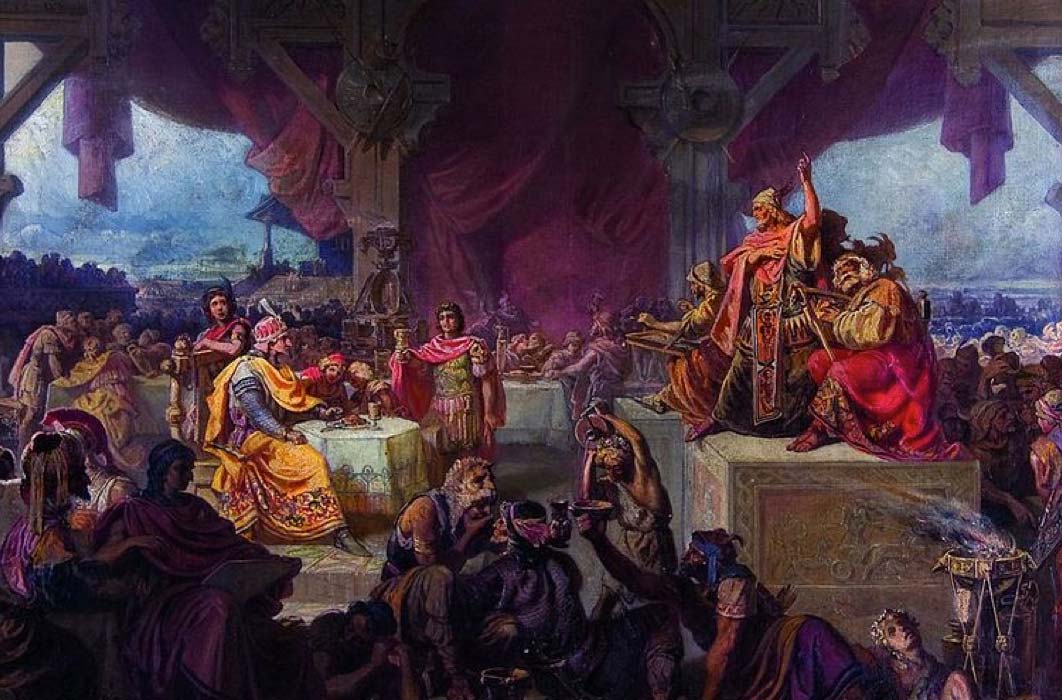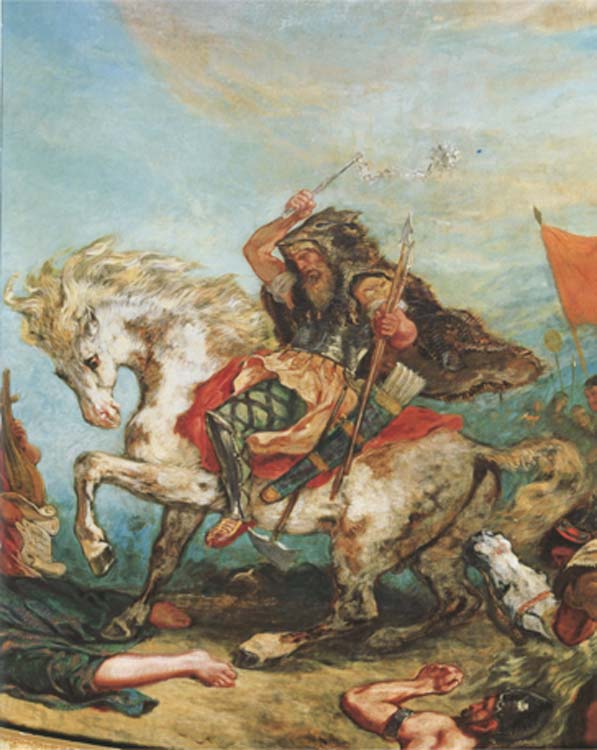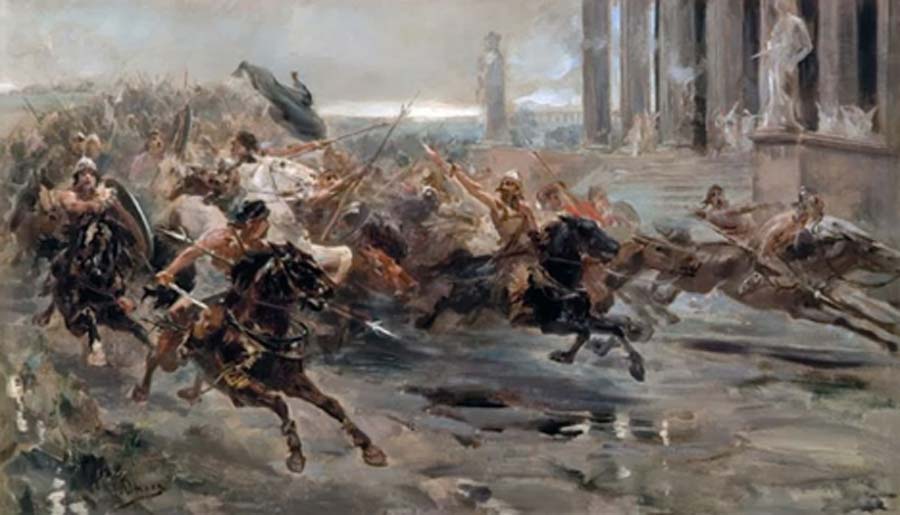
Attila The Great, Reviled as a ‘Barbarian’
Qin Shi Huang, first emperor of China and Genghis Khan have received what one might call a ‘bad rap’. They were of far greater honor and integrity than history has reported, and their achievements were truly momentous, but propaganda derailed objectivity in the histories of Qin Shi Huang and Genghis Khan. Now, one can add Attila to that list, an historical figure that has been generally reviled in the popular media and press, and often in learned journals. While Qin Shi Huang has been declared a merciless dictator who, among other atrocities, buried scholars and the builders of his mausoleum, and Genghis Khan is almost always referred to as a filthy barbarian, Attila is blamed in some sources for the fall of the Roman Empire.

Attila and his Hordes Overrun Italy and the Arts by Eugene Delacroix (1843 and 1847) Palais Bourbon (Public Domain)
Biased Historians
A key to the influence that external factors may play in how history is recorded, is the cultural, and philosophical mindset of the historian. History books everywhere can't seem to avoid reference to ‘barbarians’ who live - without welcome - in a country, attack countries, or carry out acts of genocide and other evil deeds. But terms of derision such as this are assigned, not always earned or valid. In fact, such terms usually emerge as a device to support aggressive acts of one sort or another. Nations going to war very often will invent or focus on alleged racial, political, cultural and historical attributes that justify ‘corrective’ action. Sometimes outsiders gain a negative appellation because of fear, distrust, or they are simply different. The strangers may be completely unknown and their appearance, behaviors and beliefs are just made up. The common view in histories of Attila, and the Huns, as ‘barbarians’ derived from the Huns being different - different from the high ground claimed by the Roman Empire.
Most historians agree Attila belongs in all lists of great conquerors. But does one see ‘Attila the Great’ - joining the ranks of Cyrus the Great and Alexander the Great? No, one almost always sees ‘Attila the Hun’. This reads as a pejorative, assigned to ensure nobody forgets for one moment he was a ruffian leader of filthy peasants who had the audacity to attack ‘civilization’.

The Huns approaching Rome by Ulpiano Checa (1887) (Public Domain)
Who Was Attila?
Attila was the chosen leader of nomadic central and eastern European peoples who may have had Mongolian ancestry. But that is not at all certain. One must note that there is scant historical fact around Attila and his people. No history was written by or is extant from the Huns. Accordingly, one must depend far too much on the views of others in piecing together his life and activities.
The only report available on the Huns before the time of Attila was written by Ammianus Marcellinus. He considered the Huns ‘half-human’. Christopher Kelly says it's unlikely he ever met a Hun, and regardless he had no training or skills that would have contributed to the veracity of his observations. Some of the more recent reports go no further in seeking truth than did Marcellinus. Matyszak repeats much of the same old stuff including the allegation that Attila had eaten two of his sons.
Before the Huns started moving westward into the Great Hungarian Plain early in the 5th century AD little was said about them. Their interest was apparently herding and animal breeding, but worsening conditions, possibly, drove them to relocate to a region that offered a better climate and nutrient base for both people and animals.




